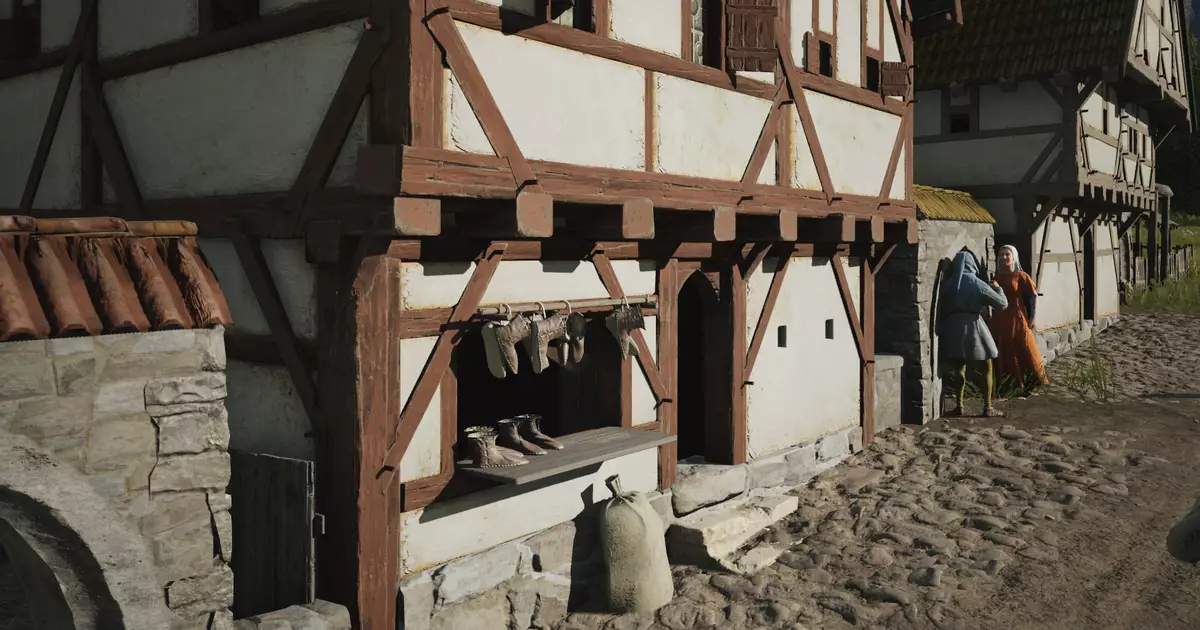Manor Lords, a captivating city-building simulation set against the rugged backdrop of 14th-century Franconia, stands at a pivotal crossroads. Rather than yielding to the stagnation that often plagues early access titles, the developers at Slavic Magic are undertaking an ambitious, comprehensive rework of the game. This drastic overhaul reflects a commitment to crafting a more immersive, authentic experience that prioritizes depth over rapid, patch-based updates. While some players might lament the silence, this strategic pause suggests a desire to elevate Manor Lords beyond typical updates—aiming instead for meaningful, systemic reinvention.
The decision to delay smaller patches in favor of a massive rework underscores a philosophical shift. Instead of incrementally introducing features that risk fragmenting gameplay or creating instability, the team chooses to focus on reimagining core systems, from building mechanics to environmental interactions. This methodical approach hints at a future where the game’s richness is rooted firmly in well-crafted, interconnected systems, promising a more compelling city builder for dedicated fans willing to wait.
From Plot Woes to Environmental Synergies: Elevating Urban Planning
One of the most intriguing aspects of this rework revolves around the revamped building affinity system. The previous model, which experimented with radial influence zones, ran afoul of the game’s unique plot system. Rectangular plots, naturally, are more manageable and visually appealing. The developers have wisely chosen to move toward a system that emphasizes environmental types—Meadow, Woodland, Farmland, Rural, and Urban—creating a more organic interaction between the city’s layout and its surroundings.
This shift offers players a tantalizing layer of strategic depth. Instead of cautiously balancing radius effects, players can now tailor their developments by matching building affinities to specific environments. Apiaries thriving in woodland regions, orchards benefiting from pollination-enhancing meadows, and urban expansions increasing city density—these nuanced relationships inject realism into every decision. It transforms city planning from a mere aesthetic exercise into a thoughtful dance with nature, reflecting the organic growth typical of medieval settlements.
Reimagining Medieval Life with Authenticity and Creativity
The development team’s focus on environment-specific building affinities also directly impacts gameplay creativity. The previous reliance on simplistic influence radii often limited player freedom, pressuring land placement decisions that felt more constrained than clever. Now, by aligning buildings’ affinities with natural surroundings, Manor Lords fosters smarter, more immersive planning.
Furthermore, the upcoming map, Divided, with its mountain range bisecting the terrain, promises to challenge players to adapt their urban strategies to varied topographies. The portrayal of diverse environments not only enhances visual appeal but also deepens the simulation—encouraging players to think about resource distribution, defense logistics, and regional specialization. It’s a bold step toward making each city feel alive and influenced by its landscape, not just a set of structures slapped onto a flat canvas.
The inclusion of new shop fronts, artisan workstations, and see-through fortifications exemplifies how the developers are adding layers of authenticity and practicality to medieval life. These elements should encourage players to take their city’s economy and defense more seriously, transforming Manor Lords from a mere city builder into a detailed sandbox of feudal power dynamics.
High Hopes for a Closer, More Engaging Experience
While the delays and systemic upheaval might be frustrating for some, there’s a clear optimistic undertone: Manor Lords is evolving into a richer, more meaningful simulation. The proposed relational systems connecting buildings and environmental types promise to elevate strategic options, fostering a sense of organic growth that mirrors real medieval planning.
Slavic Magic’s decision to prioritize systemic reworks over quick fixes reveals a commendable commitment to authenticity. This approach may test players’ patience in the short term, but the long-term reward could be a game that stands apart from its peers—remarkably detailed, deeply strategic, and true to its historical setting.
Ultimately, Manor Lords’ forthcoming updates symbolize a recalibration—a deliberate pause to build a more complex, immersive city builder that rewards patience, strategic thinking, and creativity. It’s a bold gamble, but one that could redefine how we experience medieval city simulation and set a new standard for early access titles aspiring for timeless quality.

